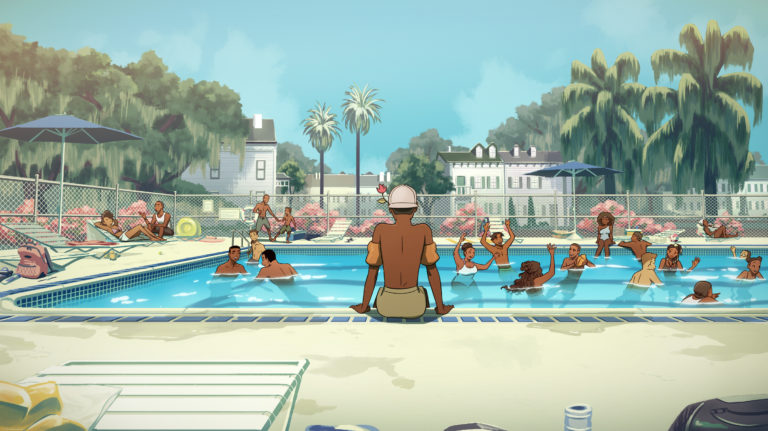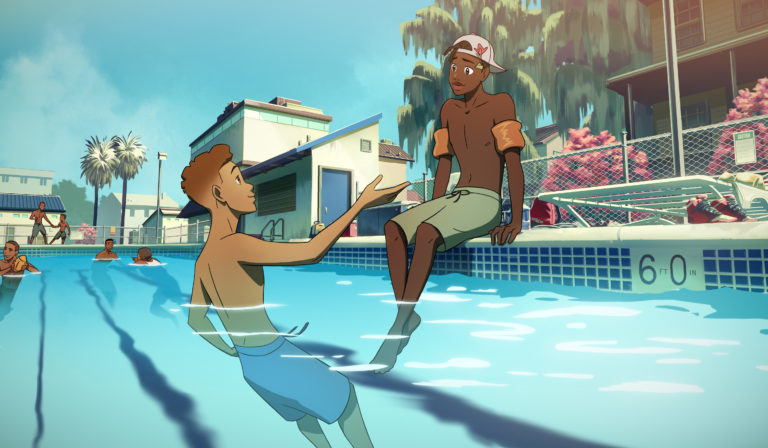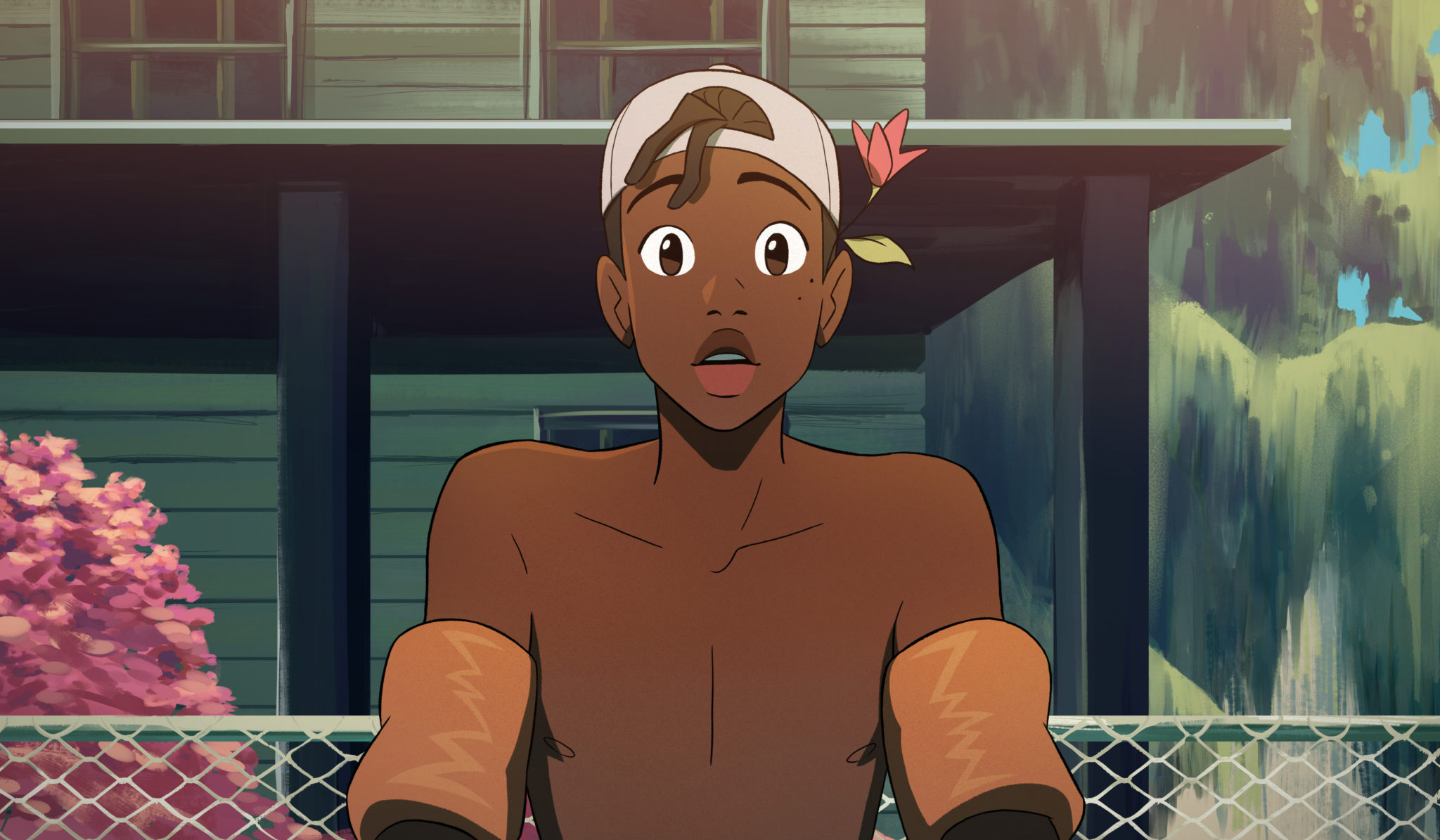Author: Keith F. Miller, Jr. Forward Promise Fellow
Images: Powerhouse Animation Studios
When I’m asked about the importance of representation, I like to lead with one question: “Name one Black, queer animated show or movie?” So far, no one has been able to name one because it doesn’t exist. Well, it didn’t, until now.
I launched Pritty: The Animation on March 1, 2021 as a 2.5-minute rough animatic. It is the first-ever Black, queer animated short film. Based on a chapter from my unpublished novel by the same name, Pritty is about a Black teen in the Deep South who, on a scorching summer day at a community pool, learns to step out of his comfort zone. With the help of a charming neighborhood boy, he overcomes his fear of the deep end. Why does this matter? Because the lack of LGBTQ+ boys and young men of color (BYMOC) representation is a health crisis, and the lives of millions hang in the balance.
Growing up Black, male, and queer in the Deep South, I’ve always been taught that words have power. This is true. But I’ve also learned that what we see determines who is allowed to exist.
If we never see you, we never know you.
If we never know you, you aren’t real.
If you aren’t real, you don’t matter.
To that end, to be seen is proof of your existence, your right to live, to love, to matter—and that is the power of representation. It not only determines who and how we live but who dies and whether they should be mourned or remembered.
Forward Promise’s 2019 report, Disrupting Dehumanization and Affirming the Humanity of BYMOC and Their Villages, revealed that the vicious cycle of dehumanization begins with negative narratives that label people of color, especially boys and young men of color, violent, criminal, and animalistic. These negative narratives are then internalized by BYMOC and their villages. The result: BYMOC may harm themselves and others. These destructive external reactions are never seen as byproducts of trauma. They are used by majority culture and systems to justify more negative narratives, perpetuating a never-ending cycle of dehumanization. For LGBTQ+ BYMOC, even the limited representations that exist in live-action coming-of-age films habitually reproduce trauma on screen and rarely showcase a lived reality outside of the pain, abuse, rejection, and trauma of being LGBTQ+. Our BYMOC don’t get to see visual representations of a future beyond the “coming out” experience. LGBTQ+ BYMOC deserve to see themselves succeeding in community and engaged in healthy, fulfilling, romantic and platonic relationships. They deserve to see versions of themselves where they are accepted by themselves and others.

Pritty: The Animation disrupts dehumanization by developing counternarratives of LGBTQ+ BYMOC thriving. Instead of watching BYMOC fight, belittle, and harm one another and themselves, we get to watch them at play, in a state of self-discovery, vulnerability, transformative acceptance, and healing. We dare to visualize a world that encompasses trauma and healing, where boys and young men of color are free to express themselves without their bodies, lives, or futures at stake.
Pritty: The Animation calls to you with an invitation to believe in a world that dares affirm the lives, dreams, and futures of LGBTQ+ BYMOC. It calls for a world where we can all find our power, materialize our hopes, and become each other’s liberation. For this story, these boys, and the villages that raise them know what the body and blood knows: what it means to be born forever free.
Learn more about Pritty: The Animation as we break barriers in television and animation, and develop educational resources and tools for healing, in partnership with communities across the country.

